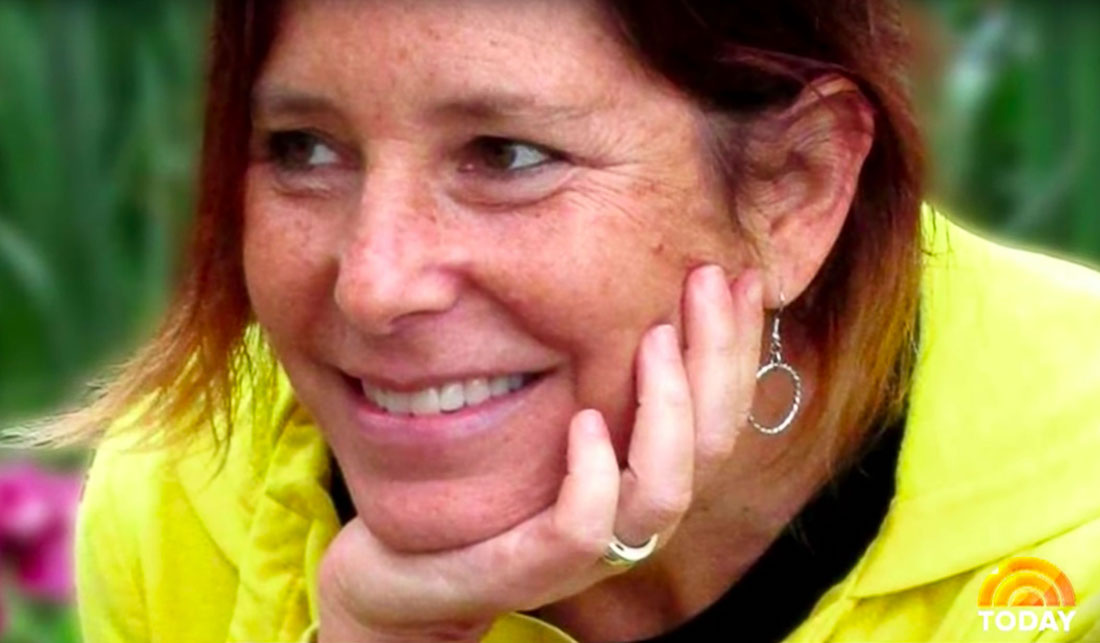Author's Heartbreaking Story: What Are the Signs of Ovarian Cancer?

Get the world’s most fascinating discoveries delivered straight to your inbox.
You are now subscribed
Your newsletter sign-up was successful
Want to add more newsletters?

Delivered Daily
Daily Newsletter
Sign up for the latest discoveries, groundbreaking research and fascinating breakthroughs that impact you and the wider world direct to your inbox.

Once a week
Life's Little Mysteries
Feed your curiosity with an exclusive mystery every week, solved with science and delivered direct to your inbox before it's seen anywhere else.

Once a week
How It Works
Sign up to our free science & technology newsletter for your weekly fix of fascinating articles, quick quizzes, amazing images, and more

Delivered daily
Space.com Newsletter
Breaking space news, the latest updates on rocket launches, skywatching events and more!

Once a month
Watch This Space
Sign up to our monthly entertainment newsletter to keep up with all our coverage of the latest sci-fi and space movies, tv shows, games and books.

Once a week
Night Sky This Week
Discover this week's must-see night sky events, moon phases, and stunning astrophotos. Sign up for our skywatching newsletter and explore the universe with us!
Join the club
Get full access to premium articles, exclusive features and a growing list of member rewards.
In a heart-wrenching essay, author Amy Krouse Rosenthal penned a dating profile for her husband to use after she was gone.
Rosenthal was running out of time: She was dying of ovarian cancer, which she was diagnosed with in September 2015.
"I'm facing a deadline, in this case, a pressing one," Rosenthal wrote in the essay, which was published March 3, 2017, in The New York Times. "I need to say this (and say it right) while I have a) your attention, and b) a pulse."
The essay is devoted to praising her husband's sweetness and charms, but Rosenthal also wrote about her cancer diagnosis. She had gone to the emergency room for abdominal pain that she thought was appendicitis. There, she was shocked to learn that her pain was caused by cancer. [5 Things Women Should Know About Ovarian Cancer]
Ovarian cancer, though relatively rare, is one of the deadliest cancers for women. Although it accounts for only about 3 percent of all cancer cases in women, it's the fifth leading cause of cancer-related death among women, according to the National Cancer Institute.
One of the reasons that ovarian cancer is so deadly is that it often goes undetected while it is still in its early stages, before it has spread beyond the ovaries, according to the Mayo Clinic.
In the early stages, in fact, the disease rarely causes any symptoms, the Mayo Clinic says.
Get the world’s most fascinating discoveries delivered straight to your inbox.
And although ovarian cancer does cause symptoms in later stages of the disease, those symptoms can often be mistaken for other problems, such as constipation, according to the Mayo Clinic. The symptoms include abdominal bloating or swelling, quickly feeling full when eating, weight loss, pelvic discomfort, changes in bowel habits and a frequent need to urinate, the Mayo Clinic says.
But the American Cancer Society (ACS) says, "by the time ovarian cancer is considered as a possible cause of these symptoms, it usually has already spread beyond the ovaries." The more quickly a woman recognizes these symptoms, the better the odds of successful treatment, the ACS website says.
If a woman has "symptoms similar to those of ovarian cancer almost daily for more than a few weeks, and they can't be explained by other more common conditions, report them to [a] health care professional — preferably a gynecologist — right away," the ACS says.
Another factor that women should consider is if their symptoms differ from what they normally experience.
One key to recognizing when a common symptom might actually indicate cancer is for women to know what is normal for them, Cynthia Gelb, a health communication specialist at the Centers for Disease Control and Prevention, told Live Science in 2012. For example, women should pay attention if there is a change in how quickly they feel full when eating, she said.
Originally published on Live Science.

 Live Science Plus
Live Science Plus











